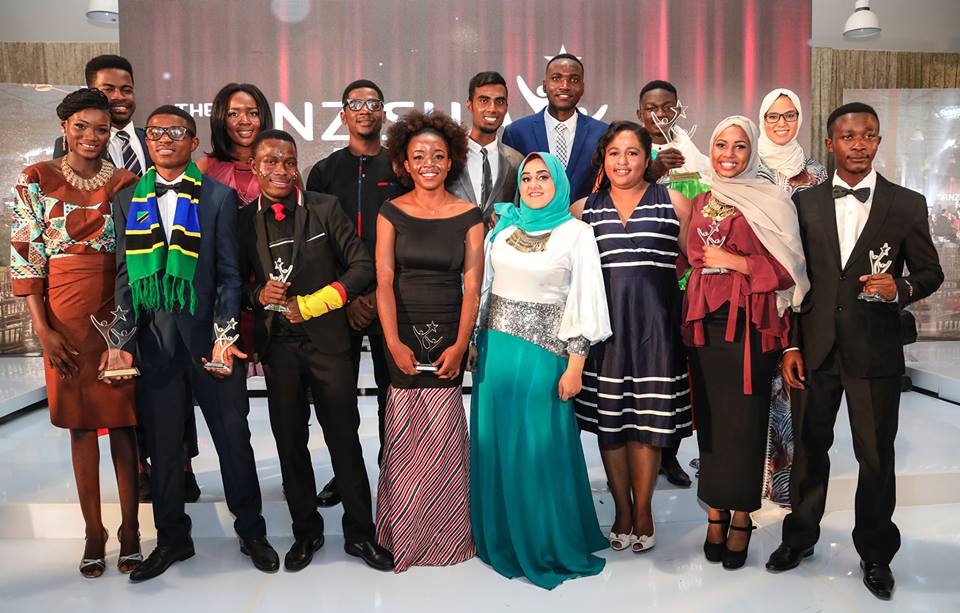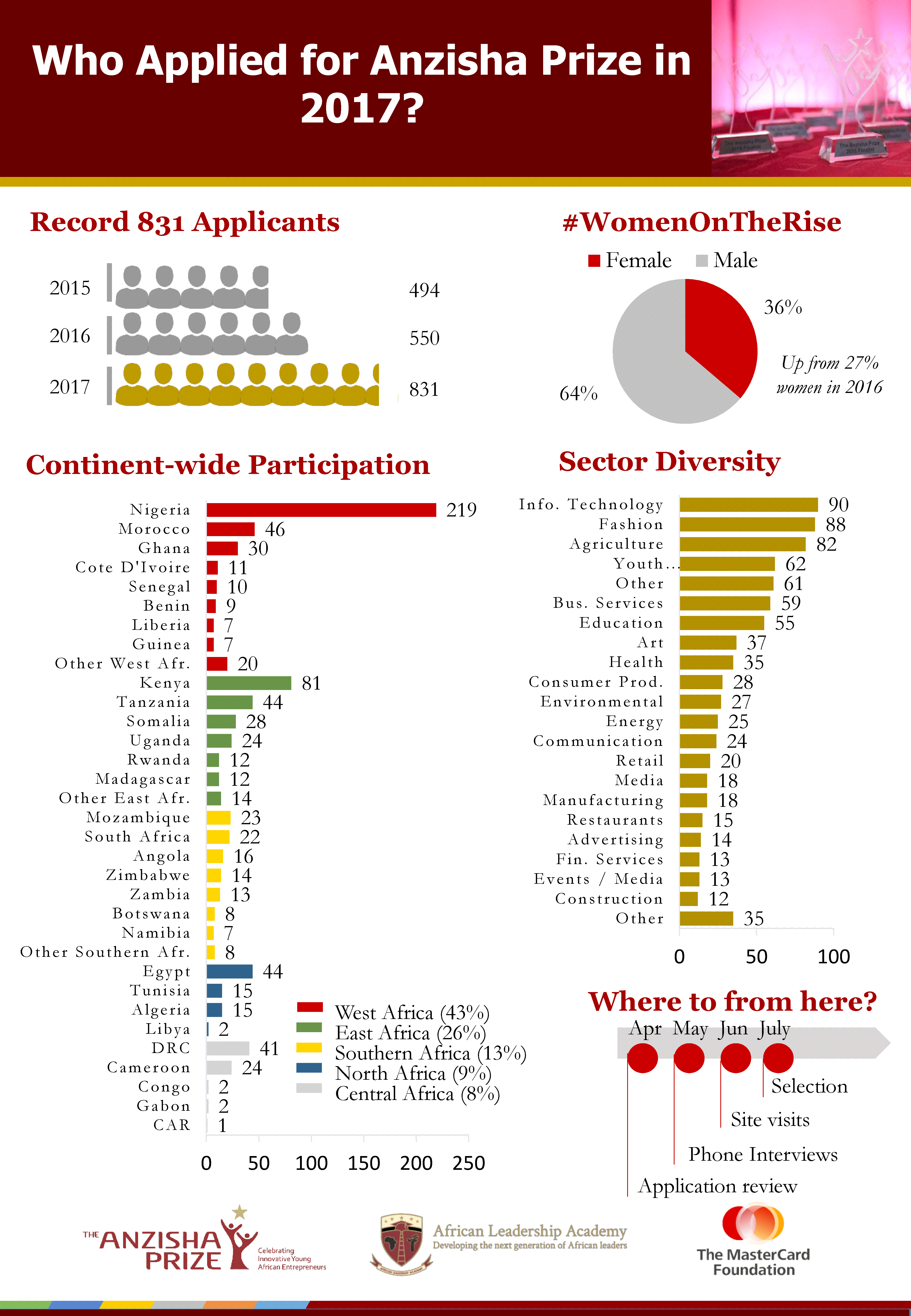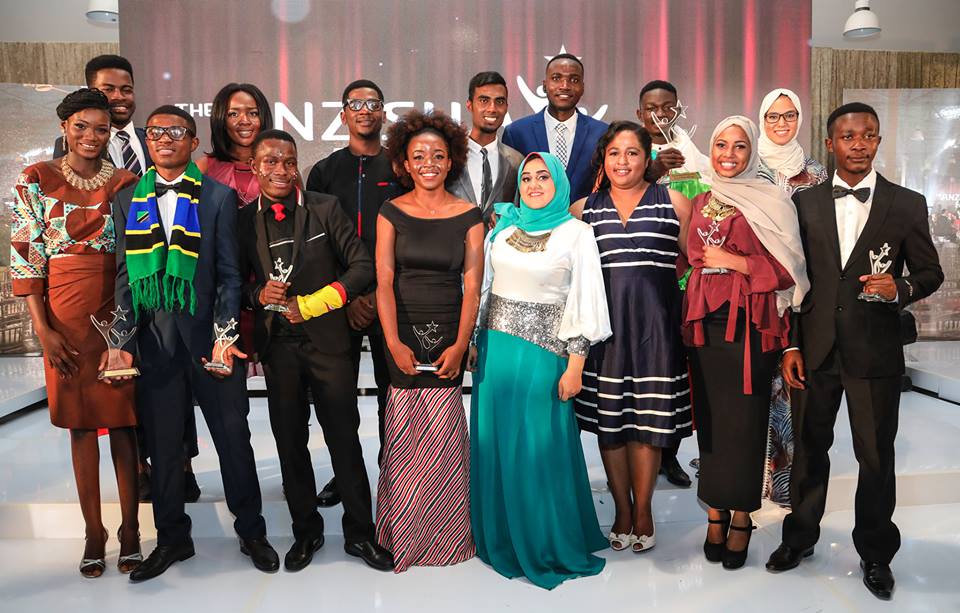
“We believe that there are plenty of young female entrepreneurs across the continent, but they are constantly fighting bias that makes them less likely to apply for opportunities such as the Anzisha Prize,” writes Melissa Mbazo, programme manager for the Anzisha Prize in an article for African Leadership Academy (ALA).
“These biases include cultural expectations, a lack of awareness of female business leaders and the conscious or unconscious bias against women as business leaders.”
To counter this, the organisation in 2017 ran a digital campaign to increase the number of entries by young women entrepreneurs for their programme.
The Anzisha Prize is one of the continent’s biggest entrepreneurship programmes and is run by the ALA in partnership with the Mastercard Foundation. Their annual prize celebrates the continent’s best young entrepreneurs between the ages of 15 and 22 from a wide range of sectors such as clean energy, agriculture, waste recycling and youth empowerment. Prize winners have the opportunity to win a share of US$100,000, receive ongoing business consulting services, and connect to a global network of leaders.
The three week campaign proved to be a success. “We received 33% more female applications than we’ve ever had before,” Mbazo writes.
Find out how Mbazo and team achieved this.
1. A focussed campaign
The flaw with their previous campaigns were “not defining clearly enough the target audience and using specific channels to reach them,” writes Mbazo.
“Instead of creating generic messages for all young entrepreneurs, we decided to aggressively focus on messages for young women entrepreneurs and those that might be connected to them.”
2. Word of mouth
As part of their campaign, the organisation ran a referral campaign that encourages people within their network to nominate female entrepreneurs, who may not think to apply themselves, for the Anzisha Prize.
3. The power of social media
The team targeted young women where they are – social media. The organisation ran paid Facebook ads in countries that, according to their research, have “significant female youth entrepreneurship activity, such as Senegal, Ghana, Zimbabwe and Kenya.”
Their social media marketing doesn’t stop there. They are used other platforms like Instagram and Twitter to highlight female business leaders, entrepreneurs and female Anzisha fellows and their accomplishments.
This includes regularly using popular hashtags like #WomenCrushWednesday.
“This was to ensure that young female entrepreneurs knew that we wanted THEM to apply – and that there were positive reinforcing female examples that they could access or relate to,” Mbazo writes.
This was reinforced with in-country entrepreneurship workshops aimed at female participants.








